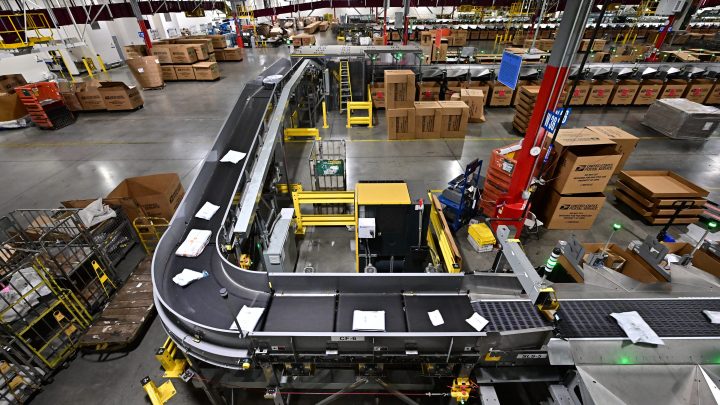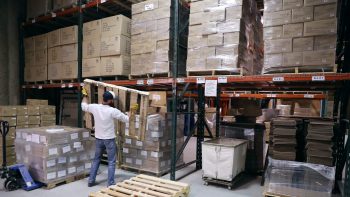
The logistics sector was weak in November, but that’s not necessarily bad news
The logistics sector was weak in November, but that’s not necessarily bad news

We got an update on the state of the shipping industry this week, courtesy of the latest Logistics Managers’ Index. It found that the logistics sector was pretty weak in November — in fact, the index fell the most since April 2022.
That was back when firms had way too much inventory on hand that wasn’t moving, since consumers weren’t buying much of it. But the weakness we saw in the logistics sector last month is a lot less concerning.
The inventory that was building up around April of last year was not great for the overall economy.
“Warehousing storage costs went up to the highest levels that we’d pretty much ever seen,” said Zac Rogers, a supply chain management professor at Colorado State University. “And that was a real contributor to the inflation that we saw in the spring and summer of 2022.”
Rogers, who helps put together the Logistics Managers’ Index, says that now the sector looks weaker because inventory levels are down, and that’s because consumers are buying a lot of that inventory.
“You know, Thanksgiving, Cyber Monday, Black Friday, we had spending all the way through, and it looks like we’re going to have a bigger holiday season than we did last year,” he said.
Meanwhile, retailers are trying to keep their shelves pretty lean, said Jason Miller, a professor of supply chain management at Michigan State University.
“As supply chains have normalized, you just don’t need as much inventory to keep those customers happy,” he said.
Miller said that’s encouraging for freight prices, which took off like a rocket earlier in the pandemic.
“And even though we’ve come down steeply, prices are still more expensive today than what they were four years ago for a lot of these services.”
The logistics sector has plenty of room to grow, said Lisa Ellram, a professor at Miami University in Ohio. It should do that by becoming more efficient — not more bloated, she said.
Companies might invest more in electric delivery vehicles or in artificial intelligence to improve inventory management.
“We can have lower logistics costs and good customer service but don’t necessarily need more inventory to do that,” Ellram said.
She added that we can expect inventories to stay low as supply chains continue to stabilize.
There’s a lot happening in the world. Through it all, Marketplace is here for you.
You rely on Marketplace to break down the world’s events and tell you how it affects you in a fact-based, approachable way. We rely on your financial support to keep making that possible.
Your donation today powers the independent journalism that you rely on. For just $5/month, you can help sustain Marketplace so we can keep reporting on the things that matter to you.

















